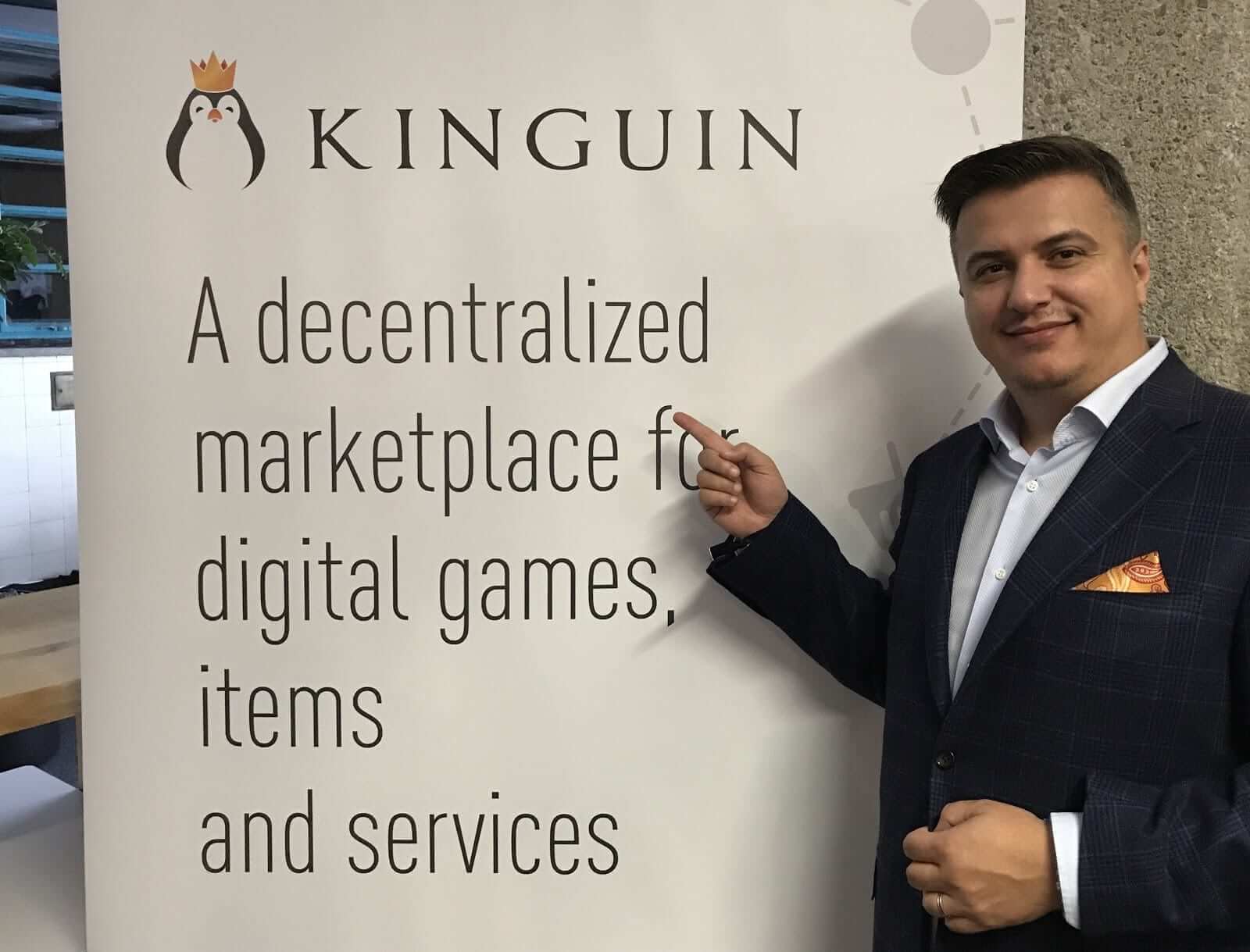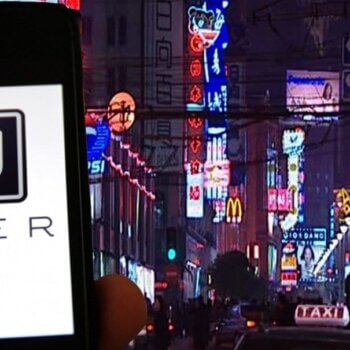Viktor Wanli is Founder of Kinguin and is on track to launch an ICO (Initial Coin Offering) in the coming months
Viktor Wanli has big plans for his 100 million USD gaming business, Kinguin. His ambitious aspirations are coming to fruition as he prepares his company for an ICO, Initial Coin Offering, in the next few months. Mr. Wanli not only wants to make a further dent in the USD 100 billion gaming industry but he also plans on expanding his business beyond gaming.
Kinguin is adopting blockchain technology to offer a completely new decentralized game trading platform supported by its own cryptocurrency. The technology is currently being redeveloped to enable a more transparent and secure trading platform and the ICO forms part of their wider expansion plans with the funds raised supporting their ongoing growth and development.
What is your story? Can you tell us a bit about yourself?
I’m half Syrian, half Czech. I was born in the Czech Republic and grew up in Syria so I speak Arabic as well. I was in marketing and in 2003, I started a video gaming business which later died in 2007 and left me with lots of debt. I moved to Poland for family reasons and in 2013, I started back in the video gaming industry and in ecommerce and that’s when I started Kinguin.
Can you explain a bit about Kinguin?
Kinguin is a marketplace for downloadable PC video games. We only do downloadable games, so nothing is shipped and no mobile games. I started the business in 2013, Kinguin now employs 350 employees, 300 in Poland and 50 in Bulgaria. It has a 100 million USD annual turnover and up until now, Kinguin has been completely self-funded. It is self-sufficient when it comes to financing. I have never sold any equity and the whole expansion of the business to 350 employees, up until now, has been completely self-funded.
I believe, Kinguin’s organic growth has been down to a few factors. Kinguin:
- Offers something unique in the marketplace
- Is the 1st organized secondary market for video games
- Is the 1st market buying from the publishers
- Has enabled the discovery of games. This discovery process is very important for gamers as the amount of video games in the market increases.
Why is Kinguin different?
Adding to the above reasons for our organic growth, Kinguin is unique, I believe because we offer something unique to our gamers.
The nature of our offer is very appealing to gamers. We are built on reputation and our growth has been organic, through word of mouth. We have 65% returning customers every year and we see this as essential to our expansion.
We deal with all customer enquiries ourselves. About 80% of the issues, we solve them ourselves without involving the merchant himself, so both parties are happy, the buyer gets their issue/s solved and the seller gets their sale without their involvement.
I think, the most exciting challenge in the company, is to react to the issues in real-time. We are similar to Amazon in this sense, in that they too are customer centric.
With organic growth it becomes significantly more difficult to respond with instant solutions to customers’ issues. it’s a challenge, especially with the rapid growth – but it forces us to think about our product selection, etc. without limiting the customers’ user experience.
Also, Kinguin is different because we are turning an existing business into blockchain. A lot of start-ups are adopting block chain technology but not many turn existing businesses.
What are your aspirations for the Kinguin business?
The digital games market is a 108 billion USD market. We still have plenty of room to grow and we will continue to grow, however, we want to grow out of digital games and take on the big guys – Alibaba and Amazon.
We see Kinguin’s growth in a similar fashion to Amazon which started in the books category, then grew into CDs and so on. But first we need to master our home category as we are not even a drop in the sea of the gaming marketplace.
For us, it’s not to become the next Alibaba, we all want to be different, don’t we? We believe we want to do it in our own way, we want to be different, but we want to be as big and as powerful!
Can you explain what an ICO is?
An ICO stands for initial coin offering and is probably the most advanced and modern way of raising funds for start-ups and existing businesses. Essentially, you are investing in a company over the internet via the use of a cryptocurrency. ICO’s are preferred by some businesses over a traditional IPO. They are less regulated, they don’t cost as much and the business owner doesn’t give up equity in the company.
What are the opportunities with an ICO?
An ICO will give Kinguin the significant push it needs to reach the next level which is very expensive. To reach this level of operations, we need new talent. Talent is a huge issue in the block chain industry. Employing advanced talent for the research and development of blockchain tech is costly. This is hard with our current financials. We need to bring on advanced talent in the blockchain business, which already has a lot of competition. Blockchain engineers are in need. There is not enough talent to pool from to feed the gap and it is growing fast.
An ICO also opens a new horizon for us to reinvent ourselves in this unchartered ocean. We believe the ICO will give us a significant push to take on the big (e-commerce) guys, allowing us to overcome Alibaba.
Regardless of ICOs, blockchain is an exciting tech which allows us to explore new markets. The ICO is a natural progression because of the blockchain technology. I see it as comparable to when the internet started. Blockchain opens up unprecedented opportunities for businesses to explore new blue oceans with not a lot of competition.
Why an ICO over traditional fundraising?
An ICO is less costly than a classic IPO and with less regulation overall, less bureaucracy. Also, you are not giving up any equity in the company.
ICOs are very complimentary to the VC funding process. If nothing else you will get a lot of feedback from the market about your product, and you won’t outlay a lot of cost. More importantly, the low barriers to entry mean that we can open this up to our customers so that they too can benefit from our growth.
What markets are you focusing on for your business expansion?
Singapore and Abu Dhabi.
The nation of blockchain are welcomed by the Singapore authorities. ICOs were banned in China so this affected Hong Kong and Japan has a similar stance, as does South Korea. But Singapore has a very friendly approach as does Abu Dhabi. They are both very influential economic powers in Asia, a natural extension. Both markets are integral for our expansion and will give us a considerable boost in the industry.
Why are ICOs a good investment (for investors)?
I recently read an article in Business Insider, Australia which quoted a report from VC firm Mangrove Capital Partners which explained that the average returns from blind ICO investments is about 1,320%.
Other than the potential substantial returns on investment, investors in ICOs can avoid traditional brokering companies and their fees. You can invest in a company which appeals to you, without any middlemen involved. You can also decide how long you want to hold onto your purchased tokens.
If you are a gamer, an investor or entrepreneur Kinguin is a company to watch. With its expansion plans in place, and a healthy return on investment predicted for ICOs, Viktor Wanli is looking at a prosperous future for his gaming business. Who knows, Kinguin could be the next (albeit different) Alibaba or Amazon? Stay tuned….
—
This article is part of the World Business Angel Forum media partnership with AsianEntrepreneur.org
If you would like more information about WBAF, please contact Callum Laing WBAF High Commissioner for Singapore. [email protected]
































